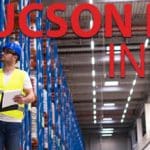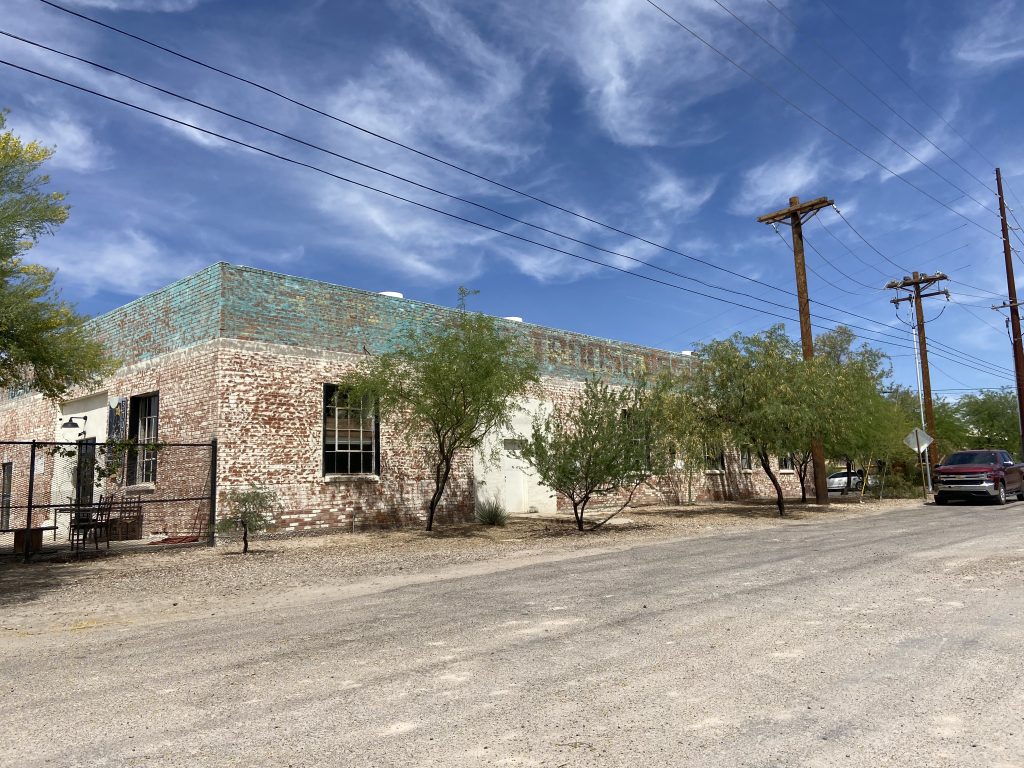Infrastructure and commercial activity at area ports increase demand for Tucson industrial buildings for sale or lease.
Recent activity at Tucson’s logistics and transportation assets is strengthening the Southern Arizona area as a Southwest hub for worldwide distribution of goods.
The Port of Tucson is the future home of an Amazon.com Inc. fulfillment center. A federal grant will provide relief for trucks moving through a Mexican border port. And the Tucson Airport Authority has boosted its commercial and industrial development efforts.
It’s an exciting time for site selectors and business owners looking for Tucson industrial buildings to lease or build. There is plenty of space for development that takes advantage of the area’s logistics and transportation facilities and services.
Port of Tucson
Amazon is adding its fifth fulfillment center in Arizona, this time next door to the Port of Tucson. The 855,000-square-foot facility will have employees pick, pack and ship customer orders of small items such as books, electronics, household items and toys.
“We’re excited to open a new, state-of-the-art fulfillment center in Tucson and to continue innovating in a state committed to providing great opportunities for jobs and customer experience,” says Mark Stewart, vice president of Amazon’s North American operations.
The port, a registered foreign trade zone, provides a wide variety of rail-oriented transportation options to move goods in and out of the Southwest. With connections to southern California seaports, Tucson can provide businesses with direct access to Asia.
Manufacturing and trade companies located in Tucson industrial buildings can place their products in containers at their loading docks, have the containers driven by truck to the port and have them loaded onto trains at the Union Pacific rail hub at the port.
The port can handle intermodal containers, provide boxcar access and team track facilities and offer public warehousing from 30,000 to 1 million square feet, including refrigeration.
Mariposa Port of Entry
Tucson is only 64 miles north of the Mexican border at Nogales. There, the Mariposa Port of Entry is one of the busiest in the United States, accounting for more than 7 million annual vehicle crossings, including 350,000 annual truck crossings.
As much as 40% of the winter produce imported to the United States goes through Mariposa, as do hundreds of trucks taking produce and other goods to Mexico.
For years a bottleneck at the port’s access to Interstate 19 along State Route 189 has slowed trade transportation. In the spring a $25 million federal grant was awarded to complete an expansion to speed truck traffic away from the border area.
State Route 189 is a traffic light-controlled feeder from the port to I-19. It’s used by both commercial and private traffic. The TIGER (Transportation Investment Generating Economic Recovery) grant completes funding for flyovers, long, unimpeded ramps that will separate commercial from personal traffic.
Funding already is available for a northbound flyover that will be constructed starting in 2019. The new grant pays for the southbound flyover that will take U.S. exports to Mexico. It also pays for other traffic improvements near the port.
“By allowing construction of both phases to begin at the same time,” according to the Arizona Department of Transportation’s website, “the TIGER grant would reduce the estimated cost of the full project from $147 million to $134 million.”
It’s an investment well spent considering that the port helped create trade of more than $15 billion between Arizona and Mexico in 2017. Arizona and the Mexican state of Sonora have created an economic super-region that depends on a bi-national logistics and transportation infrastructure, including Tucson industrial buildings for sale or lease.
Tucson Airport Authority
Business owners, land developers and site selectors will hear a lot more about what opportunities exist around the Tucson International Airport (TUS) and Ryan Airfield (RYN). That’s because regional economic development powerhouse Sun Corridor Inc. will help find investments and developments for the airports.
TUS is a designated U.S. port of entry with around-the-clock customs and immigration services. It’s close to Interstates 10 and 19, making it an ideal launching point for national distribution of goods.
Sun Corridor helps drive large business investment in Tucson and Southern Arizona by coordinating economic development activities and programs. Since its inception, it has helped create 149 company locations and expansions in the region.
The partnership will expand the Sun Corridor’s marketing portfolio of land for Tucson industrial buildings, as well as accelerate income-producing development for the Tucson Airport Authority.
Both airports have facilities and sites that can support transportation and logistics services such as aircraft maintenance, repair and overhaul. Other industrial and manufacturing activities can also find room to lease or construct Tucson industrial buildings.
Growing Recognition
Several national companies already recognize Tucson’s strength in transportation and logistics. Target, Frito-Lay and HomeGoods are just three that already have major distribution and fulfillment centers in Tucson.
Mexico’s thriving maquiladora industry depends on a Tucson workforce to provide business expertise and product distribution. Arizona Canning Company uses its Tucson location to can and ship its Mexican food products both into Mexico and throughout the United States.
With recent commercial and infrastructure developments, there’s plenty to like about the logistics and transportation systems that encourage demand for Tucson industrial buildings and warehouses.
Share your experiences on working with Commercial Real Estate Group of Tucson.















